Make Your Experiences Count. They Can Change the World.
LET’S BRING ALL OF OUR KNOWLEDGE AND EXPERIENCES TOGETHER.
TOGETHER WE KNOW MORE. TOGETHER WE ACHIEVE MORE. TOGETHER WE DO BETTER.
LET’S BRING ALL OF OUR KNOWLEDGE AND EXPERIENCES TOGETHER.
TOGETHER WE KNOW MORE. TOGETHER WE ACHIEVE MORE. TOGETHER WE DO BETTER.
Published: September 15, 2022
Since the beginning of 2022, Renate Sova has begun a new chapter in her work with HORIZONT3000. From her base in Guatemala, she is not only guiding the Knowledge Management Programme for 14 Central American partner organisations, but she is also working simultaneously as a Technical Advisor (TA) for three of those organisations. In addition, she is coordinating a so-called triangulation, a south-south cooperation accompanied by a TA.
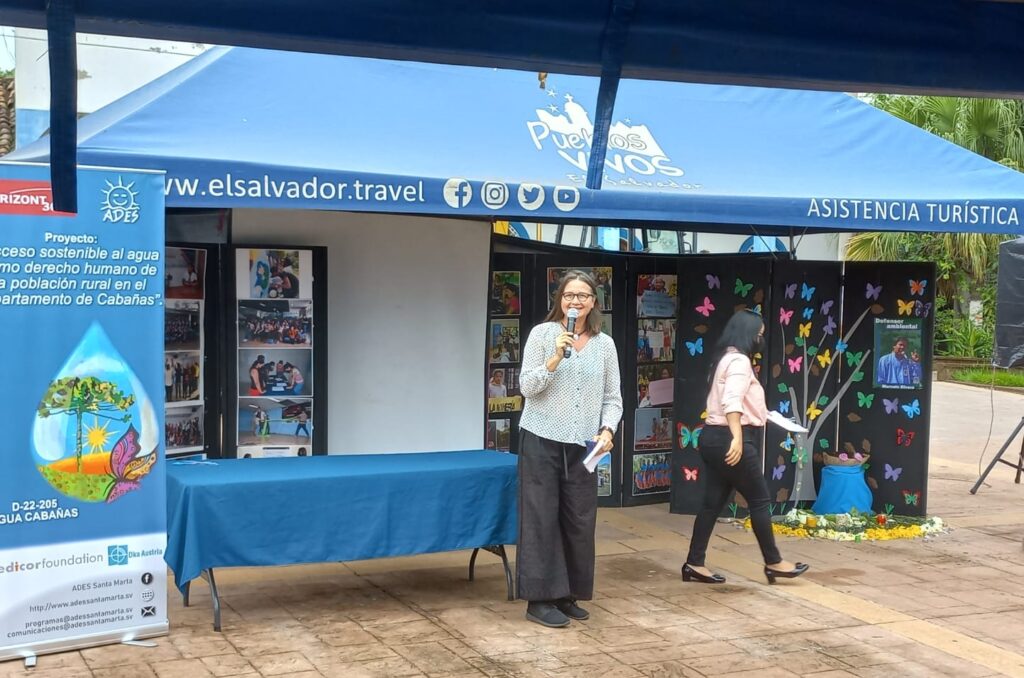
Renate is no stranger to Central America: from 1994-97 she worked in Guatemala as a human rights observer. Since then, the trained educator has been working in Austria with NGOs in the fields of development education and project management, among other things. She is quite familiar with the work of a TA too: In 2016/17 she advised partner organisations in Uganda on organisational and capacity development.
I took the opportunity to meet Renate for an online interview on her first seven months in office. We had a fascinating conversation on knowledge management, on the changing requirements of “assistance”, and on our partners’ innovative work practices in face of bad internet connections. Keep reading to find out more.
How does your new work area feel so far?
Before I took this position, I was in Uganda as a TA and I was working there with just one organisation at a time. Now I support 14 different organizations from my base in Guatemala. Some of them I could not even meet in person yet! So, this is a big difference. It includes more organisational and coordination work and there are fewer individual contacts. In the area of knowledge management there are different levels, for example. One is to prepare country-specific trainings and workshops; another one is to organise exchange visits between organisations; and of course, there are also the Communities of Practice, which are quite vital over here. So, I am constantly working out which organisation has what kind of needs and see that the groups work together. I have more of a desk job now, so to say, working behind the scenes.
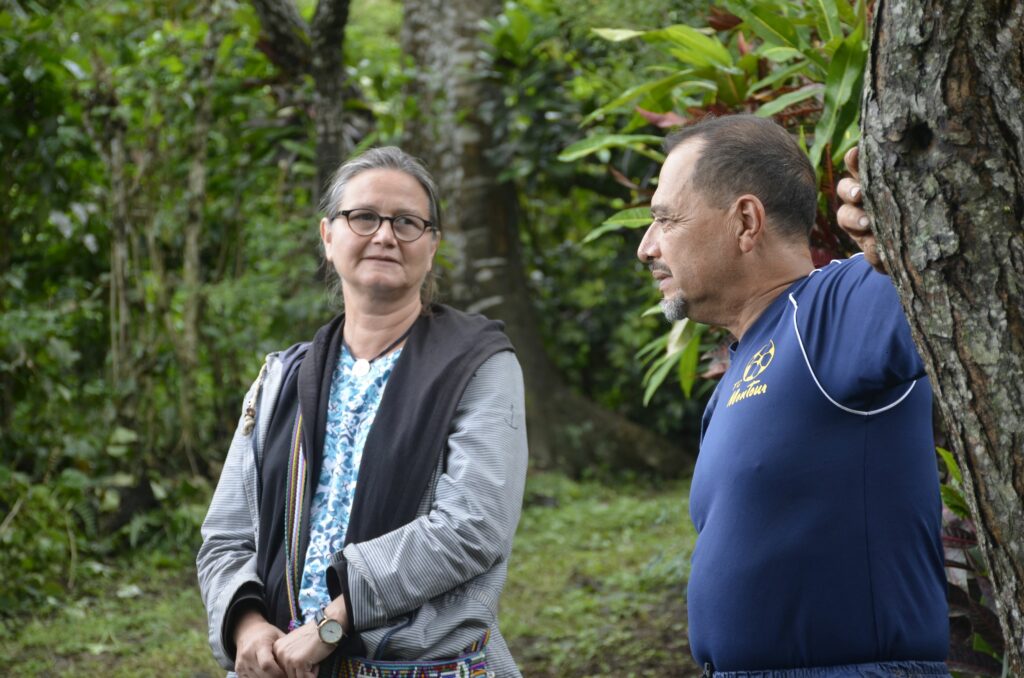
But of course, there are also the visits to our partners within Guatemala, and in El Salvador and Nicaragua. These small countries are vaster than you may expect and so culturally diverse. The journeys themselves are often exhausting, but I love visiting the projects, having workshops together, and just being with the people. It complements all the digital work.
Were there any particular surprises, unexpected challenges or accomplishments?
Having worked in Guatemala in the 1990s, what impressed me the most, was the high level with which our partner organisations operate, organisationally as well as content-related. They are professional organisations; they know their topics and they know exactly what their goals are and what they need in order to achieve them.
So, they can learn from each other as much as they can learn from us. It is just a wonderful moment, when an organisation comes back from an exchange visit to another organisation, fascinated by what they have seen and learned there. There are a lot of highly motivated and innovating people, experts in their fields but always on the quest to learn more, so to be able to do more and to share this knowledge with other. You can see this in the changes and adaptions which have been carried out since the beginning of Covid-19, for example in the area of technology and digital collaboration.
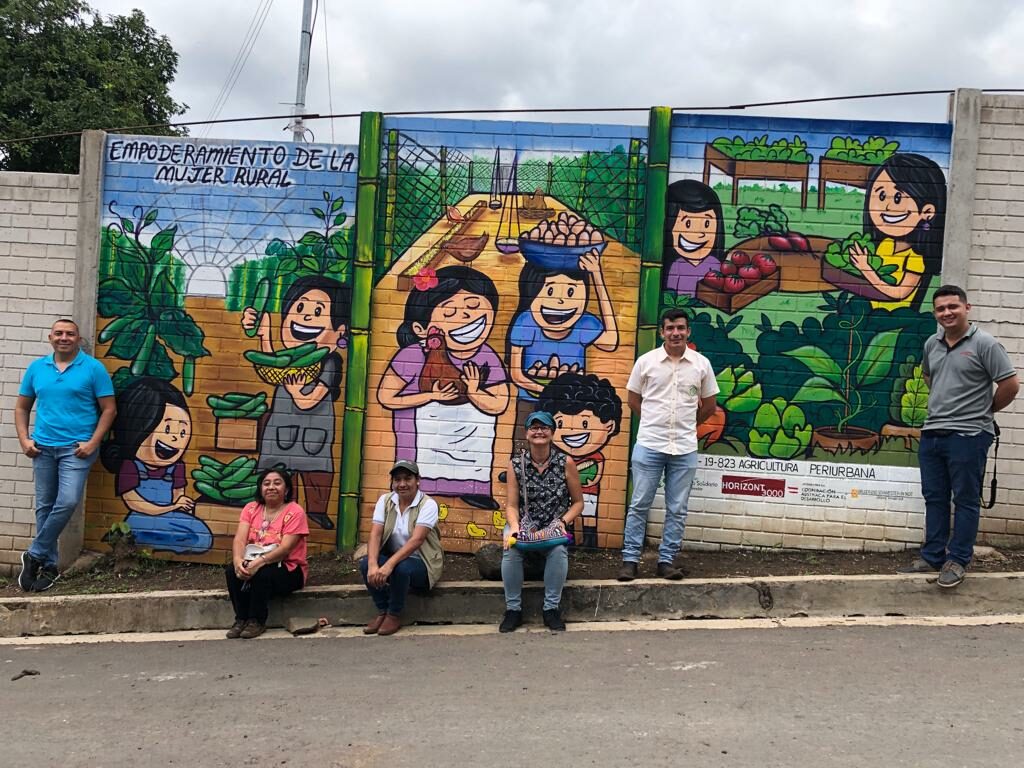
Yet one of the main challenges in this regard are constant problems with internet connection. In every single online session, there are a couple of people freezing or dropping out completely. Well ok, everybody has a smartphone now and some people living in rural areas sometimes go up a hilltop to participate from there; but the connection in general, even here in the city, is just too instable.
While some of course are trying to avoid online meetings, counting on phone calls, chats and mails instead, others are finding ways to adapt to this problem. And this often includes a decentralisation of those meetings altogether. Under this circumstances, online sessions cannot be organised and led in a top-down fashion by one person alone. Instead, 5 or more people are involved in the preparations and function as co-hosts. In this way, there is always someone who can carry on if anyone drops out. There is no dependency on a single person, we are all replaceable – except speakers who give a specific presentation. But at least we get their slides and documents beforehand.
Of course, this system involves more preparation, but it works! And as a result, we have learned a lot about organising and exchanging online efficiently. These experiences have also improved ways of storing and sharing relevant stuff. In this aspect, a couple of partners have come really far regarding knowledge management. They are doing an excellent job, producing a lot of good material to work with.
In the end, all this leaves us not so much with the task of showing them what and how to do it, but much more with the task of figuring out how we can incorporate these structures and all this knowledge, so that other organisations, including HORIZONT3000, can profit from them as well.
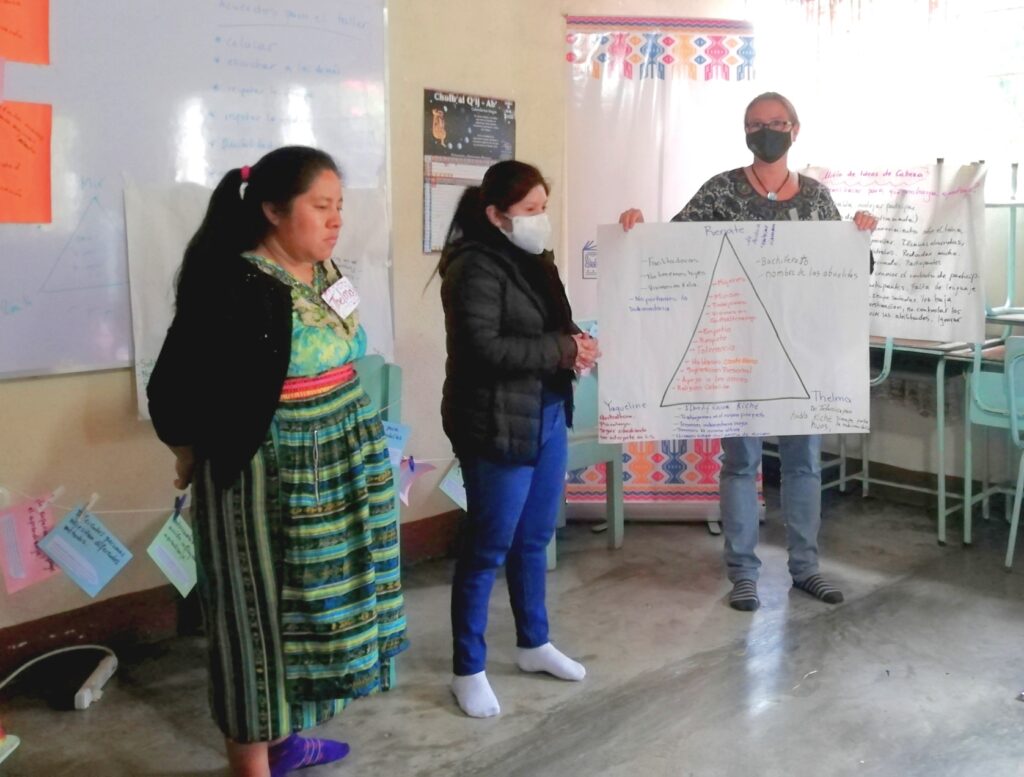
So, you say that the form of support provided by HORIZONT3000 needs to adapt to this changed contexts?
It does already! The work we are doing right now is far from being the kind of “assistentialism” of the 90s. There are times however, when you question if it is even necessary that somebody from Austria comes over here to “coordinate” knowledge management. But then again, I have talked with many people here and a lot of them say it is good that they have someone from “outside” in this position. First of all, it creates a new perspective on things, and second it allows for a kind of “neutral” guidance when this work is not done by someone from this or that specific organisation and this or that country. In this context, trust building is one of the most important parts of my position. And of course, it is also easy for me to communicate with HORIZONT3000 and, for example, ask for something. You have a different relationship to your funder than to your employer. In this regard our partners are quite glad they have me as an intermediary between them and everything happening in Austria.
One thing is clear: you cannot give this position to somebody based in Vienna, visiting Central America just one or two times a year. It just would not be feasible. It is hard enough to travel within this region alone. And of course, it is hard to build trust if you are not actually living here, in this context; even if it is for a limited period of time. Either way, you should not rule out that in the near future somebody from over here can take this position and have the same qualities and do the same or even a better job.
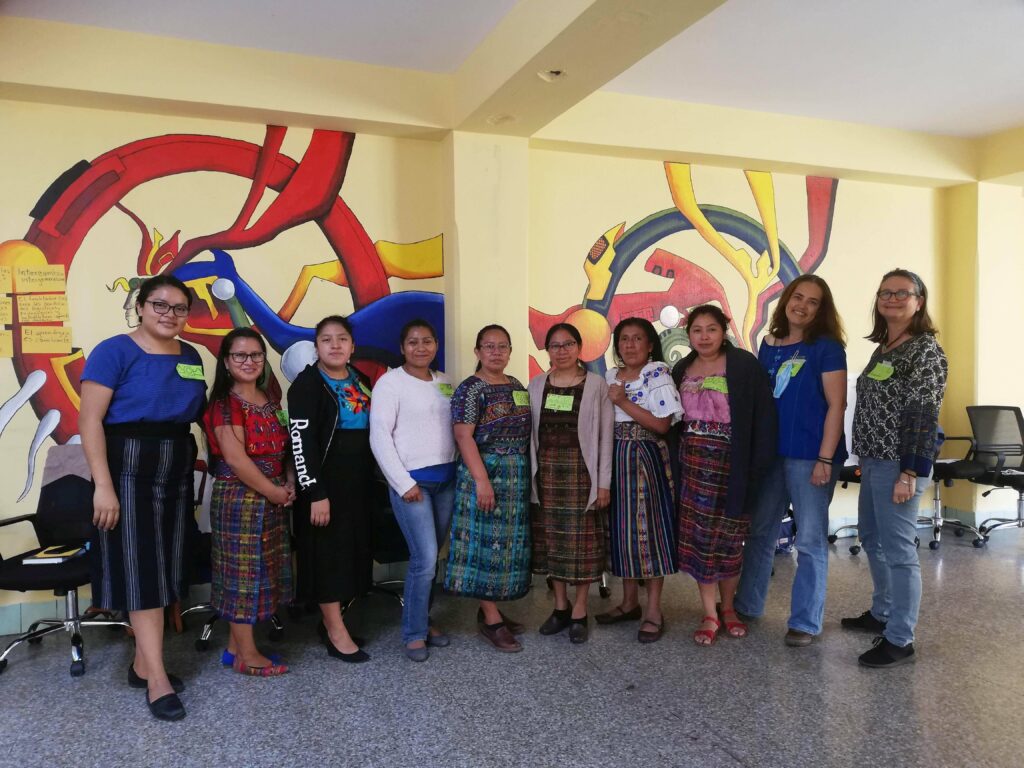
What are you looking forward to in the coming months?
In October we have our first big personal meeting since 2019! All 14 partner organisations are invited as well as colleagues from the office in Managua. We will be around 40 people coming together here in Guatemala. The beauty of it is that we are organising this collectively in a team, everybody can take part and have a say (which sometimes can get quite laborious and time-consuming). The tasks before and during the event are split between many different people and the moderation will be carried out participatively. In this sense it will be a meeting of many. For me, the way we are preparing for this meeting is also a kind of “knowledge management” put into practice.